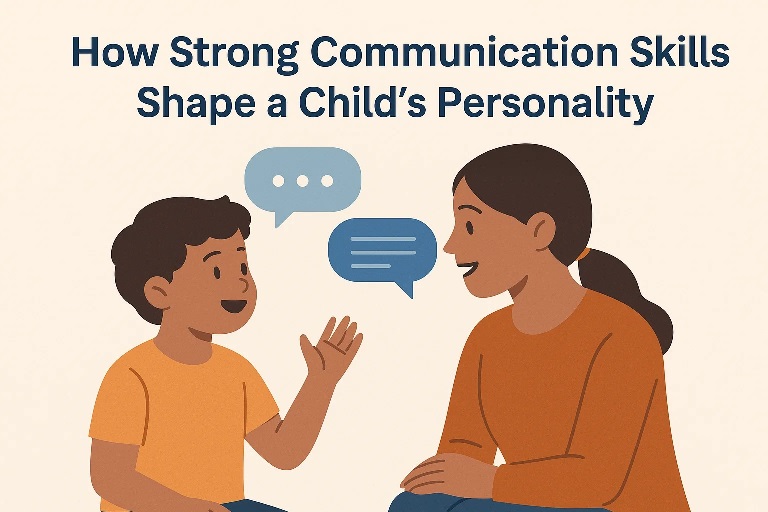As parents and educators, we all want children to grow into confident, expressive, and capable individuals. One of the most important foundations for this growth is strong communication skills. The way a child learns to express thoughts, listen actively, and connect with others plays a major role in shaping not just academic success but also personality and overall development.
Why Communication Skills Matter for Children
A child’s ability to communicate effectively goes beyond speaking in fluent English or using the right words. It is about how they listen, process information, express themselves clearly, and interact with people around them. Studies have shown that children with good communication skills are more likely to perform well in school, develop leadership qualities, and build stronger relationships with peers.
According to a 2023 UNICEF report, children who regularly engage in meaningful conversations at home and in school show higher levels of confidence and empathy compared to those who do not. Another study published in the Journal of Child Development highlights that early language skills are strong predictors of later academic achievement and even career success.
How Communication Shapes Personality
Boosts Confidence
Children who can articulate their ideas clearly feel more confident in social situations. Whether it is answering a question in class or participating in group discussions, good communication builds self-esteem. A confident child is more willing to try new things and take initiative.Improves Social Skills
Effective communication helps children make friends, collaborate in group activities, and resolve conflicts peacefully. For example, a child who knows how to express disagreement politely will find it easier to maintain healthy relationships.Encourages Critical Thinking
When children are encouraged to explain their ideas or narrate experiences, they learn to organize thoughts logically. This habit improves problem-solving and critical thinking abilities.Enhances Academic Performance
Communication skills are directly linked to better reading, writing, and comprehension. Teachers often note that students who ask questions and express doubts clearly perform better in exams because they understand concepts more deeply.Develops Emotional Intelligence
Good communicators are better at recognizing and expressing their emotions. For example, a child who can say “I feel upset because…” instead of showing anger develops healthier emotional control and empathy.
Practical Examples in Everyday Life
A shy student who starts reading stories aloud at home gradually becomes more confident in school presentations.
Children who participate in debates or storytelling competitions often show improved leadership qualities.
Families that practice “dinner table conversations” help children learn listening and turn-taking skills, which reflect in better social interactions outside the home.
Latest Insights
Research from the National Education Policy (NEP) 2020 in India emphasizes communication as one of the essential 21st-century skills. Schools are encouraged to focus on language development, public speaking, and collaborative projects. Globally, employers also value communication as one of the top soft skills. Developing these abilities early ensures that children are better prepared for future opportunities.
How Parents Can Help
Encourage regular reading and discussions about the story.
Ask open-ended questions like “What do you think about…?” instead of simple yes or no questions.
Create opportunities for your child to speak in front of family or friends.
Limit passive screen time and encourage conversations instead.
Enroll children in activities such as drama, debate, or group projects that naturally build communication.
My Thoughts
Strong communication skills are not just about speaking well; they are about shaping a child’s entire personality. From confidence and social interaction to academic success and emotional balance, communication lies at the heart of growth. By nurturing these skills from an early age, parents and teachers can help children become confident, thoughtful, and well-rounded individuals.
At IndiaTutor.in, we believe that effective communication is one of the greatest gifts we can give children for lifelong success.
By Nidhi Mehta – Founder – IndiaTutor.in


